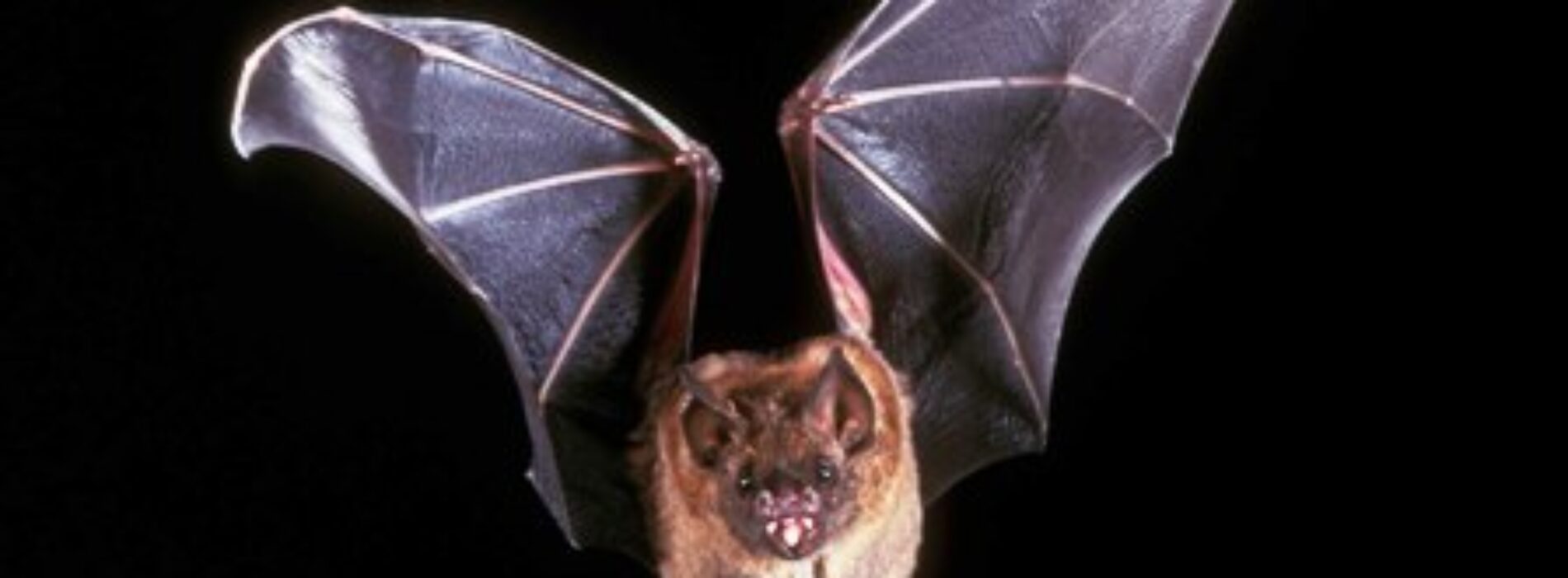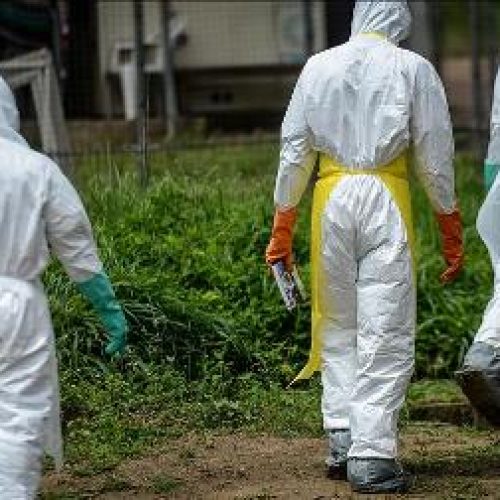NCDC issues High Alert on Marburg Virus Disease
-
Says Nigeria has moderate risk for MVD based on data
As the World Health Organsiation, WHO confirmed an outbreak of Marburg Virus Disease, MVD, in neighbouring country, Ghana, the Nigeria Centre for Disease Control and Prevention on Wednesday issued a high alert on the disease, stating that no case has been recorded in Nigeria.
In its High alert following the second incidence of MVD in West Africa, the NCDC which explained that the zoonotic disease has been reported in two unrelated males – 26 and a 51 years old – who both died from the disease also noted that based on available data, the overall risk of both importation of the disease and its potential impact on the Nigerian population is said to be Moderate as assessed by experts and NCDC.
The disease was first discovered in 1967 following outbreaks in Marburg and Frankfurt in Germany, and Belgrade, Serbia. Since then, outbreaks and sporadic cases have been reported in some African countries.
The alert signed by the Director General of the NCDC, Dr Adetifa said currently, no case of Marburg virus disease has been reported in Nigeria.
“However, several measures are being put in place to prevent an outbreak of the disease in the country. The National Reference Laboratory has the capacity to test for MVD, point of entry surveillance has been heightened, trained rapid response teams are on standby to be deployed in the event of an outbreak and the NCDC’s Incident Coordination Centre (ICC) is in alert mode.
“The NCDC is also amplifying risk communication efforts and continues to work with States and partners to strengthen preparedness activities which include – review of risk communication protocols, plans and messages in the event of an outbreak.
He said already, Ghanaian public health officials are responding with support from WHO to halt the spread of the disease.
“Given the proximity of Ghana to Nigeria as well as the WHO alert, the NCDC-led multisectoral National Emerging Viral Haemorrhagic Diseases Working Group (EVHDWG) that coordinates preparedness efforts for MVD, and other emerging viral haemorrhagic diseases have conducted a rapid risk assessment to guide in-country preparedness activities.
“Based on available data, the overall risk of both importation of the disease and its potential impact on the Nigerian population is said to be Moderate as assessed by NCDC experts and partners given the following: the proximity (same region), high traffic from Ghana and countries that share borders with Ghana, the incubation period of 21 days of the virus, heightened surveillance at point of entry, Nigeria’s capacity to respond to the outbreak in country and the fact that persons with MVD transmit the virus when they become symptomatic unlike for SARS-CoV-2 that causes COVID-19 that can also be transmitted by infected persons without symptoms.”
He further explained that Nigeria has the capacity to test for the virus presently at the National Reference Laboratory in Abuja and the University of Lagos Teaching Hospital laboratory Centre for Human and Zoonotic Virology. Diagnostic capacity can be scaled up to other laboratories if required.
“Nigeria has the resources (human, technical and laboratory) for prompt identification and management in the event of a single imported case.
“However, the risk of importation may be further reduced as the current situation in Ghana is under control as reported by Ghana Health Service. Active case finding is ongoing in Ghana while there is heightened surveillance in Togo and Benin. Therefore, the response situation may change in the coming days with the control efforts in Ghana and advisories as may be issued by the World Health Organisation. In addition, many of the contacts under follow-up in Ghana will soon exit the 21-day quarantine period and so far, there have been no secondary cases reported,” he added.
He urged Nigerians to avoid non-essential travel to locations where the outbreak is reported for the moment, direct contact with blood, saliva, vomit, urine, and other bodily fluids of people with suspected or confirmed Marburg virus disease, animal reservoir (fruit bats), other sick animals and ensure all persons with the symptoms described above are promptly taken to healthcare facilities for diagnosis and initiation of supportive treatment.
He also urged Nigerians if they suspected and/or confirmed MVD cases, direct physical contact should be avoided by ensuring strict isolation, and the use of protective gowns, masks, gloves and safe disposal of needles, bedding, and other contaminated materials.
“There should be strict practice of infection prevention control in the healthcare setting for all suspected patients. male survivors of Marburg virus disease should practice safer sexual practices and hygiene for 12 months from onset of symptoms or until their semen test negative twice for the virus.”
What it is
The Marburg virus causes a rare, highly infectious disease and severe haemorrhagic fever (MVD) in humans and non-human primates just like the Ebola virus, its closest relation and only other member of the Filoviridae family of viruses. It is another example of a zoonosis such as Lassa fever, etc.
The natural animal reservoir/host are fruit bats (Rousettus aegyptiacus). Following the transmission from infected animals to humans, it spreads in humans through direct contact with the bodily fluids of infected people, and contaminated materials and surfaces. The virus can enter the body through broken skin or mucous membranes in the eyes, nose, or mouth.
The initial symptoms of the disease include sudden onset of fever (Temp ≥37.5OC), chills, headache, body aches which may be accompanied by a rash, most prominent on the chest, back and stomach, nausea/vomiting, chest pain, sore throat, abdominal pain by the fifth day of illness. Increase in severity of illness can be heralded by the appearance of severe watery diarrhoea, jaundice, inflammation of the pancreas, severe weight loss, bleeding from multiple areas, delirium, shock, liver failure, massive haemorrhaging, and multi-organ dysfunction and/or failure. In fatal cases, death occurs often between 8 and 9 days after symptom onset. The case fatality rate for MVD is estimated to be 24% to 88%.
The Marburg virus is known to persist in the body – placenta, amniotic fluid, foetus of infected pregnant women, breast milk of women who were infected while breastfeeding and semen – of persons who have recovered from MVD.






0 Comments
No Comments Yet!
You can be first to comment this post!